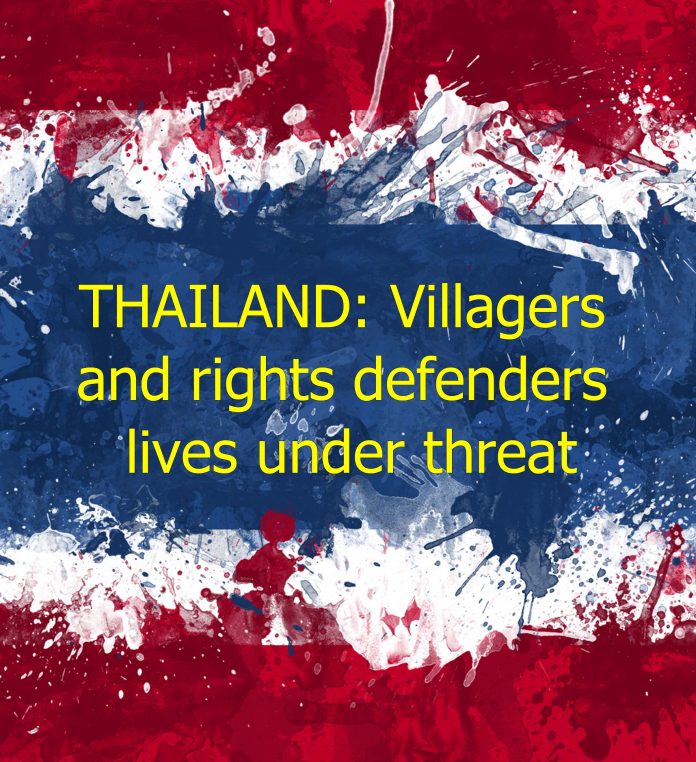The Asian Human Rights Commission (AHRC) has learned that threats against human rights defenders in the Khon Rak Ban Koed Group working to protect their communities from the negative effects of mining in Loei Province in Thailand are facing grave threats against their lives.
Dear friends,
The Asian Human Rights Commission (AHRC) has learned that threats against human rights defenders in the Khon Rak Ban Koed Group working to protect their communities from the negative effects of mining in Loei Province in Thailand are facing grave threats against their lives.
CASE NARRATIVE:
As we described in our original appeal (AHRC-UAC-073-2014), at 10pm on the evening of 15 May 2014, a group of approximately 100 unidentified armed men wearing black entered the area of Nanhongbong in Loei Province. The armed men attacked the villagers and took 30 villagers as hostages, including two of the key leaders of a struggle against a mining operation. The hostages were placed face down on the ground and their hands and feet were bound. The barrier that the villagers had constructed to block access to the mine was destroyed and trucks were seen transporting materials from the mine. The villagers were released at 4am, and report being assaulted and threatened with guns as well as their hands and feet being bound. When other villagers called the police, only two police were sent to aid them, and they turned back once they saw the large number of armed men. To date, the identity of the armed men who entered the village is not known, but there has been no attempt by the authorities to hold them to account.
Two weeks ago, the village around the mine was attacked and human rights defenders and villagers beaten and detained by armed, marked men while ore was carried out from the mine. The AHRC has learned from a reliable source that the company plans to use the cover of martial law and criminalization of dissent put in place by the coup to once again use force to move the ore out of the mine. The villagers live under continuous threat of attack. The AHRC has also learned from a reliable source that on 28 May 2014, a lawyer working with the community was followed while he was driving to court to submit a petition for a temporary protection order to prevent the company from carrying out any activities, including the transport of copper ore from the mine. This is clear intimidation.
The AHRC and Protection International have further learned from a reliable source that gunmen have been hired to assassinate eight of the community leaders. On the afternoon of 30 May 2014, the reliable source informed the villagers that a team of 30 assassins had been hired for the amount of 300,000 baht (approximately 10,000 USD) to kill the community leaders within one week. That evening, a group of 5-6 armed, muscular men stood among the rubber trees across from the house of Suraphan Rujichaiwat, one of the leaders. On 31 May 2014, a black, four-doored pick-up truck drove around Fakhuay village. On 1 June 2014, at around 8 pm, there were two instances of gunshots being fired behind the house of one of the female leaders of the villagers For the past two days, villagers have been afraid to go out to tap rubber and are afraid for their lives. To protect themselves, villagers had to keep their doors closed and stay inside their houses after sunset.
ADDITIONAL INFORMATION:
The AHRC is very concerned about the safety of the lives of the villagers and rights defenders affected by the mine. The risk of violence against human rights defenders in Loei is heightened given the broad-based repression and criminalization of protest caused by the declaration of martial law on 20 May 2014, and the coup by the National Council for Peace and Order (NCPO). The AHRC calls on all those concerned with human rights in Thailand to call for assurances from the NCPO and other relevant authorities to ensure that the villagers' safety and right to life and livelihood are protected.
